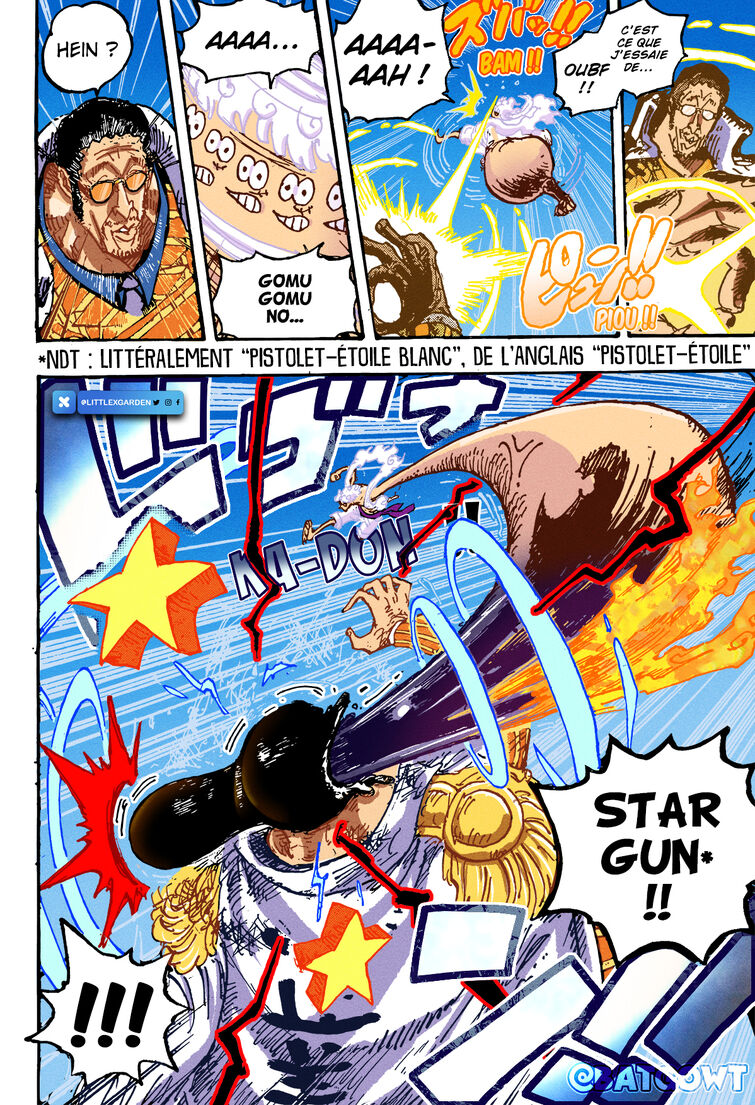Willpower = haki. Kizaru was wishing someone could stop him the whole time. You can't conveniently square away him
falling to tears and being hostile towards Akainu after returning from the mission.
It was similar when base Lucci straight
fodderized Luffy and Zoro in Water 7. They didn't know what to make of Robin's actions, or what she truly desired. They wanted to trust her but there was
slight hesitation and doubt. That "moment" where she poured her heart out to the crew was precisely when everyone could go
demon mode and perform their best.
But Kizaru wasn't even a case of just simple
hesitation. He was hoping to get
stopped. He was actively trying to
self-sabotage.
Feeding Luffy. lmao Can you even
imagine the combat nerf in proportion to that?
But I think it's Oda's habit of not allowing Luffy to sacrifice the impact of some of his spotlight moments that feeds this type of agenda brain rot. He's too obsessed with keeping him #1 in popularity polls and it comes across like he can't trust his readers to find Luffy compelling/lovable without that.
Being ambiguous about who fed Luffy in the manga but then revealing it in SBS feels like he wanted his cake and eat it too.
Weak af.
If I'm being
generous, it was
by design that he hid the fact that Kizaru was conflicted until crashing out on Akainu. To keep the tension high and for us to be heartbroken at Kizaru's crashout later instead of in the moment.
That's kind of how I took it, but you have to remember that Oda crafts his work so that
all levels of reading comprehension can understand what's going on. But, it's fine if the lowest common denominator reader can't understand stuff like hidden themes, meanings, and mechanics. Those aren't integral to the enjoyment of a story.
In the case of CP0 vs. Straw Hats, many of these "special" readers might think the power jump of the Straw Hats between Water 7 and Enies Lobby was an asspull. I'm not bothered by stuff like that at all because it doesn't inherently diminish anything super important. It's the opposite, actually. Showing and not telling us gives the readers an opportunity to parse a few things under the surface. It's part of the fun of enjoying a story that can double and triple dip the concepts it's presenting us.
But if we can't unanimously agree on something like an important character's
heart break and the effects of that (agenda or no agenda), it's going too far in my opinion. It's fine to have a "checklist" of things you want to promise/maintain, but sticking to it at all costs and not being flexible enough to accomodate what you're putting out is a bit silly to me. And this case was
especially egregious.




